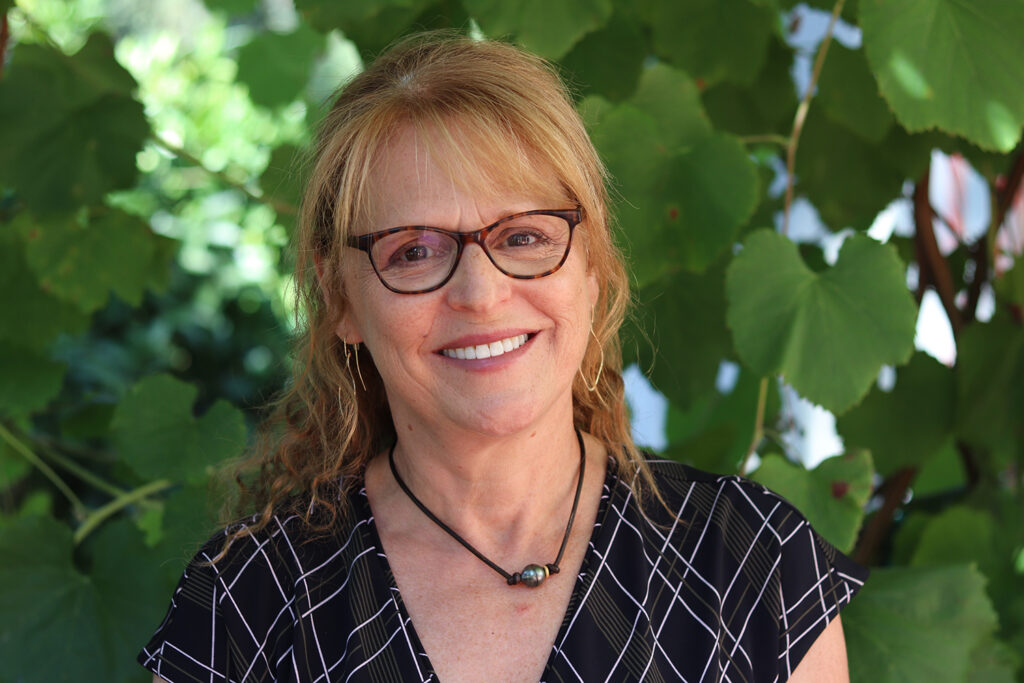New advisory committee will serve as ongoing source of recommendations and support for Stanford’s Jewish community
President Marc Tessier-Lavigne appointed members to a panel charged with helping enhance Jewish life at Stanford and reaffirmed support for the community in the wake of recent antisemitic activity in campus buildings.
Stanford has created a panel of students, faculty, staff, and alumni to assess and enhance Jewish life at the university.

University Ombudsperson Brenda Berlin, JD ’90, will chair the committee. (Image credit: Courtesy Brenda Berlin)
President Marc Tessier-Lavigne appointed the committee as part of the university’s response to a task force report that identified actions taken to limit the admission of Jewish students in the 1950s and recommended steps to support the university’s present-day Jewish community.
In announcing the membership, Tessier-Lavigne said the university’s Department of Public Safety investigation of recent antisemitic vandalism on campus, including Nazi swastikas and an image of Adolph Hitler on the door of a Jewish student’s dorm room, underscores the importance of the committee’s mission and work.
“The Jewish Advisory Committee brings an array of perspectives, with keen eyes and ears for what’s happening on campus. Together, the panel members will be a steady, deliberate source of guidance for what works well and what more is needed for the supportive, bias-free experience that our Jewish community expects and deserves,” Tessier-Lavigne said.
“With equal vigor, we are committed to investigating the appalling acts of antisemitism on campus, providing support for members of our Jewish community who are troubled and fearful because of them, and taking appropriate action against anyone found to be responsible for these acts.”
Committee membership and charge
Following release of the task force findings in October, Tessier-Lavigne apologized on behalf of the university for the efforts in the 1950s to limit the admission of Jewish students, and he pledged to create the new committee, described in the charge “as a way of creating a dynamic, action-oriented, and sustainable means of addressing the needs of the Jewish community on the Stanford campus.”
University Ombudsperson Brenda Berlin, JD ’90, will chair the committee, whose members are:
- Randee Fenner, ’75, lecturer in residence at Stanford Law School
- Shelly Fisher-Fishkin, the Joseph S. Atha Professor in Humanities
- Emily Gurwitz, undergraduate student
- Justin Hefter, ’11, executive director of the 30 Birds Foundation
- Shelley Hebert, ’76, co-president of the Stanford Jewish Alumni Network
- David Jaffe, ’21, law school/graduate student
- Ari Y. Kelman, the Jim Joseph Professor in Education and Jewish Studies. Kelman chaired the Advisory Task Force on the History of Jewish Admissions and Experience at Stanford University
“The committee will assess the needs of the Jewish community on the Stanford campus as represented by students, staff, and faculty, with a focus on how to best enhance Jewish life at Stanford,” the charge reads.
Their work will focus on the campus climate; religious and cultural opportunities, including academic, housing, and dining accommodations; bias and antisemitism; and steps to “minimize, eliminate or address antisemitism” at Stanford.
The Office for Religious and Spiritual Life and the Vice Provost for Institutional Equity, Access, and Community will support the committee’s work.
Investigation of antisemitic incidents
DPS is investigating a series of similar antisemitic incidents, some of them likely committed by the same person, that have occurred during the current academic year as hate crimes.
They include several Nazi swastikas and the Hitler image left on a whiteboard on the door to a room in the Florence Moore Hall dormitory whose resident identifies as Jewish. Nazi swastikas also have been found carved into restroom stalls, twice with the letters “KKK,” and an elevator wall. And two mezuzahs were torn from students’ door frames during Rosh Hashanah and Passover.
These are among the incidents described in more detail on the Protected Identity Harm Reporting website.
Additional support for Jewish community
The creation of the advisory committee and the vandalism investigation are among a number of actions the university has taken in recent months to offer support.
Rabbi Laurie Hahn Tapper, associate dean for religious and spiritual life, Rabbi Jessica Kirschner, executive director of Hillel at Stanford, and resident fellows met with affected individuals and groups. They also have provided support for a student-led session on the experiences and impact of antisemitism.
Continuing outreach by ORSL and Hillel includes identifying additional opportunities for students to share their concerns and helping residence life staff deepen their understanding and create additional ways to help.
After the antisemitic vandalism at FloMo, Susie Brubaker-Cole, vice provost for Student Affairs; Patrick Dunkley, vice provost for Institutional Equity, Access & Community; Tiffany Steinwert, dean for Religious & Spiritual Life; and Hahn Tapper shared information with students and sought to reassure them.
“We wish to be clear,” the administrators wrote in a message to all students. “Stanford wholeheartedly rejects antisemitism, racism, hatred, and associated symbols, which are reprehensible and will not be tolerated. We have been reaching out with care and concern to the students directly impacted by this incident, as well as to FloMo residents and our Jewish student community.”
The Faculty Senate voted in November to change the academic calendar to avoid a conflict with Yom Kippur at the beginning of fall quarter 2023 and is considering adjustments in subsequent years.
Administrators are also exploring ways to use awareness and diversity training programs to address hateful acts targeting the Jewish community.
Anyone with information on the antiemetic incidents is encouraged to contact the Department of Public Safety at (650) 723-9633 or the department’s 24/7 communications center at (650) 329-2413.
Student health and well-being resources are available from Student Affairs and from the Office for Religious and Spiritual Life, Hillel at Stanford, and The Rohr Chabad House at Stanford.